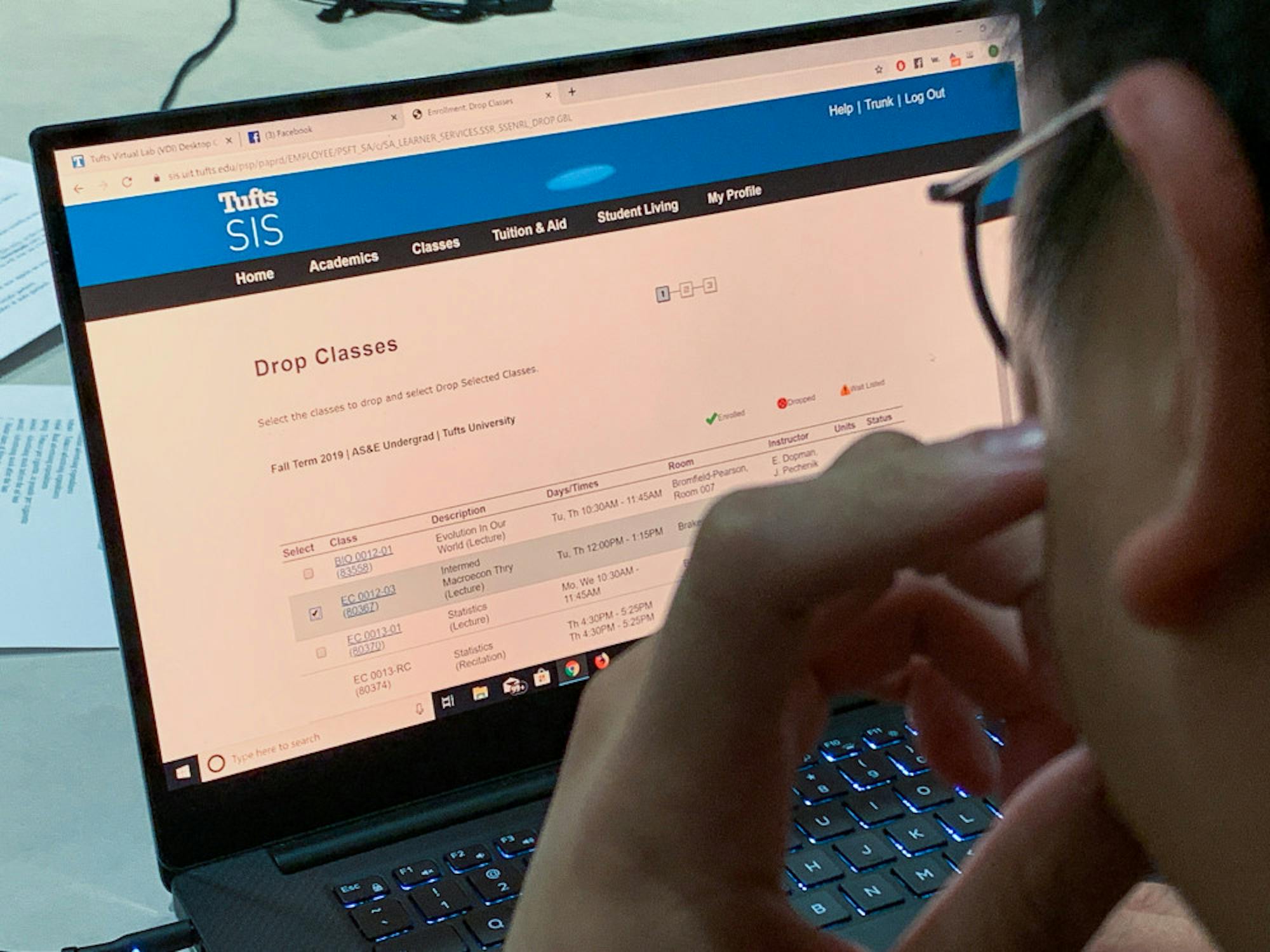Faculty members from the Schools of Arts and Sciences and Engineering voted to extend the exceptional pass/fail (EP/F) policy to the spring 2021 semester in a meeting on Dec. 18. Jennifer Stephan, dean of academic advising and undergraduate studies at the School of Engineering, and the five associate deans of undergraduate advising, announced this extension in an email to undergraduate students on Jan. 19.
The email noted that the EP/F policy is unlikely to be implemented in subsequent semesters. It also outlined a set of details about the policy, such as the letter grades that constitute a pass versus a fail, the deadline to opt into EP/F grading, and the irreversible nature of doing so for a certain course.
Stephan and Carmen Lowe, dean of undergraduate studies, provided further explanation for the purpose of the policy and its timeliness during the ongoing COVID-19 pandemic.
“We have continued the exceptional grading policy in Fall 2020 because of concerns about the unpredictable nature of the health and economic crises posed by the pandemic, time-zone differences endured by virtual students, and the worsening of inequities in the way in which the pandemic is disproportionally impacting some populations,” they wrote in an email to the Daily.
According to Stephan and Lowe, university administrators and deans were excluded from the vote on the extension of the EP/F policy.
“Neither the provost nor President Monaco were involved in voting for the outcome that was adopted by the faculty," they said. "Only full-time faculty in [the Schools of Arts and Sciences and Engineering] are permitted to vote."
They said that most students took letter grades for all their classes last semester, adding that the policy should not be used as a fail-safe by students who face greater challenges this semester.
“Students who are facing serious personal, family, and health crises (including mental health conditions) should also avoid relying entirely on EP/F grading and instead consider existing options such as medical leave and personal leave,” Stephan and Lowe said.
They also cited data from the fall semester that highlights some of the drawbacks of the policy.
"There is also some concern about students responding to short-term anxiety about GPA, opting into EP grading to cover up perfectly good grades of B or C, and then facing negative repercussions later when applying for opportunities such as internships, study abroad, and graduate/professional school," they said.
Stephan and Lowe also said that faculty noticed a drop in the quality of student work and effort compared to semesters during which the policy was not implemented.
“Faculty observed that some students do not take the class seriously, slack off in attendance and effort, and do not participate or support their classmates very well in group conversations and group projects,” Stephan and Lowe said.
They further articulated that slacking off is most detrimental to students enrolled in sequential courses of study, including STEM and language courses.
Leading up to the Dec. 18 faculty vote, the Tufts Community Union (TCU) Senate convened in its last meeting of the semester on Dec. 6 to discuss a resolution brought forth by several senators regarding the EP/F policy. They deemed it necessary to bring up an EP/F resolution during this meeting to emphasize the overwhelming student support for the policy.
TCU Parliamentarian Taylor Lewis articulated its necessity to show concerned faculty members that students are united behind the continuation of the EP/F policy, citing that 93% of students demonstrated their support for the continuation of the policy in a fall 2020 student feedback survey.
“The idea behind this resolution is to … communicate that support in a clear and concise way for faculty … so that the representatives in [faculty] meetings can point to it and say, ‘TCU Senate voted overwhelmingly for the continuation of exceptional pass/fail. This is what the student body wants,’” Lewis, a senior, said.
Professor of Mathematics Fulton Gonzalez noted that he did not see a shift in his Calculus III students’ performance this past semester with the exception of one student out of about 90.
“The exam medians were almost the same as they were before pass/fail went into effect, as well as for the assignments,” Gonzalez said.
Gonzalez said he believes that the policy was appropriate to implement during the 2020–21 academic year.
“It acts as a sort of pressure relief valve for students … who may have issues to deal with during the pandemic, such as internet connectivity and various other things like that," Gonzalez said. "It’s really hard to anticipate … the issues and the problems that individual students might have dealing with the learning modalities that we have … For this academic year, I think this was an absolute necessity.”






